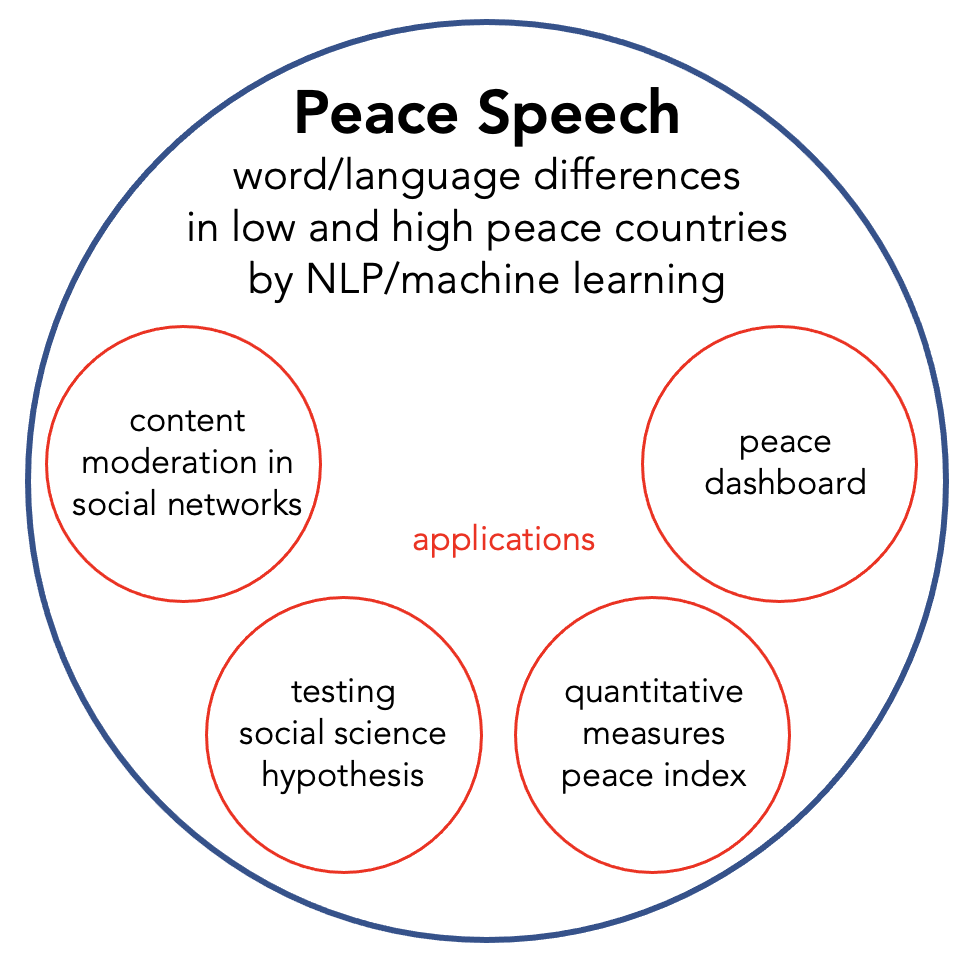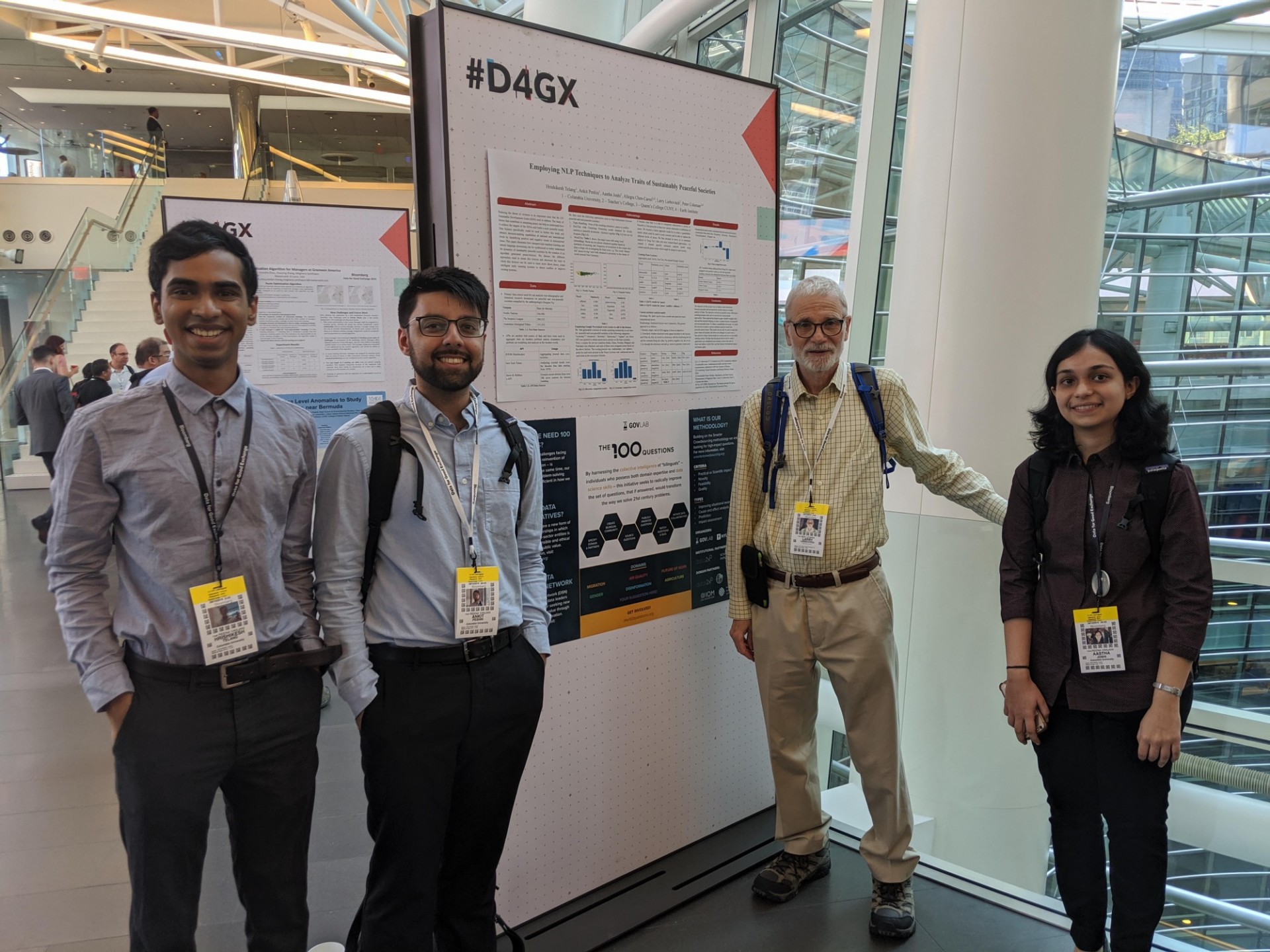Understanding Peace Speech
As part of this effort to uncover peace speech, the Sustaining Peace Project has worked with cohorts of data scientist master’s students through the Data Science Institute (DSI) at Columbia University for the past 3 years. This fall marks the third DSI cohort, where we ran data from two major source categories: news media and Twitter. News sources were found through web scraping techniques (i.e. sources whose data were accessible to the public online for processing) and the Twitter posts collected included only sources where the location of the post could be verified (via GPS tracking).
Findings: Although there seemed little different between high-peace and low-peace countries in the Twitter data, the news media sources showed a similar pattern as with past data collection: language from high-peace countries seemed to cover a wider range of topics, with words referring to art, sports, daily activities, and seasons, whereas language from low-peace countries were more narrow in scope, with words referring to social order and control, governance, law and policy.

Want to learn more?
See how mathematical modelling frames this research:
In physical science, mathematical models can be used to determine how micro-scale individual interactions between parts of a system produce the macro-scale system properties of the entire system. Based in the project’s causal loop diagram, an interactive mathematical model was created whereby interactions of all the peace factors can be computed together at once. Decisionmakers can then use the interface to explore the system‐wide effects resulting from different interventions. In this way, different hypothetical scenarios can be tried, evaluated, and judged against one another.
The Sustaining Peace Project hosts a graduate student workgroup aimed at using data science techniques to track, measure, and better understand the dynamics of peaceful societies. One project from this group, which featured using Natural Language Processing to analyze traits of peaceful societies, was recently presented by three graduate students of Columbia’s Data Science program at Bloomberg’s Data for Good Exchange.

Relevant Publications
-
Coleman, P.T., Liebovitch, L.S., Fisher J. (2019). Taking Complex Systems Seriously: Visualizing and Modelling the Dynamics of Sustainable Peace. Global Policy Journal.
-
Liebovitch, L. S., Coleman, P. T., Bechhofer, A., & Colon, C. (07/08/2019). Complexity analysis of sustainable peace: Mathematical models and data science measurements New Journal of Physics. doi:10.1088/1367-2630/ab2a96
-
Liebovitch, L. S., Coleman, P. T., Futran, D., Lee, D., Lichter, T., Burgess, N. & Ripla, C. C. (2018). Modeling the Dynamics of Sustainable Peace. In Mathematical Modeling of Social Relationships (pp. 147-159). Springer, Cham.

